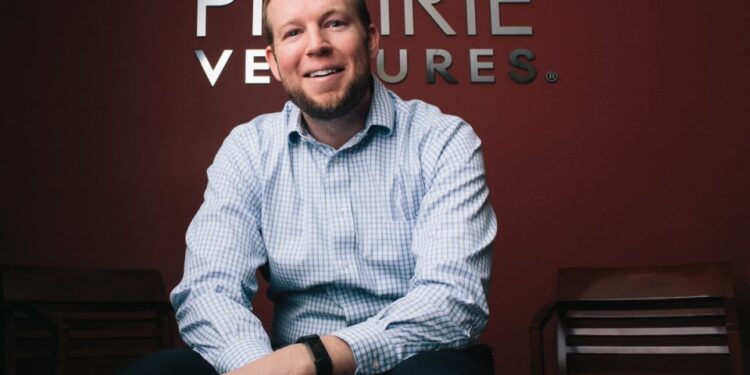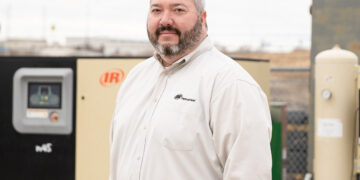It takes much more than just a good idea to launch a successful new business. From a comprehensive business plan to office space, starting a new business is no easy task. According to the Small Business Administration, only about half of new startups make it to the five-year mark.
That in mind, business incubators and accelerators offer supportive methods to help convert ideas into viable businesses, boosting startups with capital, a host of support services, and mentorship in exchange for a stake in the business.
Incubators guide a business from its embryonic stages and cultivate early development in exchange for a portion of the business, typically 5 to 10 percent. The time spent in an incubator depends on how long it takes the business to hatch its own workspace, or the amount of time needed to outgrow the current workspace. In many cases, one investor group funds several or all of the businesses in the incubator. Mentorships come from entrepreneurial investors and peers in the co-working space.
An accelerator has distinct differences, one being that the time spent in the central workspace is usually 90-120 days. Accelerators help a relatively well-developed business speed its transition through the final stages of planning and into actual operations. The business owner receives less funding, because the support services are meant to improve the owner’s means of raising capital following the startup’s graduation from the program. Mentorships often come from entrepreneurs affiliated with the accelerator.
Mark Griffis, founder/president of software development firm Aviture, is also managing partner of The Garage by Aviture, a software startup incubator. He says he sees a real need for accelerators and incubators in the community along with increased awareness of their existence and function.
“There are a lot of talented people here in Omaha. But what we found when we opened the doors to The Garage a couple of years ago, we had 200 people pitching to us and out of that there were probably only three who were really actually ready to receive funding and go to the next level,” Griffis says. “There’s just a lot of education that needs to happen.”
Before attempting to apply to an incubator, a startup should have a solid, marketable idea, and often, a solid business plan. The company needs to be able to show potential investors there is something to build on. They must commit to the incubator’s regulations, which often include training sessions and other time-consuming activities.
Griffis emphasizes that while funding is certainly important, the sharing of expertise can save budding entrepreneurs from harsh trial-and-error lessons and is a crucial factor in helping them succeed.
“One of the key differentiators [for The Garage] is how we’ve integrated it with Aviture. In our environment we have such a diverse group of [technology-minded] individuals who can add experience to what these startups are doing. So people who are working…on the Aviture side can help can collaborate with startup guys who are trying to find their way out of the woods,” he says. “It’s not the traditional incubator with a bunch of startups cross-pollinating or creating coalitions.”
Luke Towey is director of finance for Prairie Ventures, a private investment fund and cooperative of entrepreneurs and investors that, at one time, also operated a business incubator. He says that not every applicant will be accepted into an incubator or accelerator, but the business can still be successful.
“It’s not that it isn’t a good idea or that it’s not something the entrepreneur could be successful with, it’s just that they might be better off getting an SBA loan, or grant money, and doing it on their own,” Towey says.
Not all incubators and accelerators are commercial ventures. Steve Bors, director of the Entrepreneurship Center at Southeast Community College in Lincoln, says the college was one of the first in the state to offer a business incubator on campus more than a decade ago.
“We’re here to serve southeast Nebraska. That’s our mission, and this is certainly filling a need in southeast Nebraska,” he says. “Here at the Center we will help anybody who’s interested in starting a business. They do not have to be a student. If we can’t help them, we will refer them to some other entity or other service provider who can. Our coaching services are free and then of course we have our incubator on site, which we call our Focus Suites. We have 20 offices that we make available to people starting businesses or who are early in the process.”
Dale Eesley, director of the University of Nebraska-Omaha’s Center for Innovation, Entrepreneurship & Franchising, says educational institution-based incubators “generally don’t take any equity.”
An entrepreneur who wants to work with a college-based incubator should expect to rent a workspace. While corporate incubators normally require regular meetings with coaches, entrepreneurs at college incubators seek out faculty as a resource for information and coaching.
“The educational institutions oftentimes aren’t set up to easily accommodate the business needs of students. It’s a nice compromise to have an offsite or a nonprofit for venture outside of the university school system. It simplifies intellectual property issues and also it gives students the contacts they need that are outside, like suppliers, customers, and investors,” Eesley says. “I hope that UNO will have [an incubator] in the near future. I’m optimistic that we’ll have space on campus in the next three years.”
Bors says that while many commercial incubators and accelerators are associated with the tech industry, his on-campus incubator fosters businesses in many sectors.
“We think all new businesses are valuable. They’re creating new jobs where they didn’t exist before,” he says. “I’m very proud about how diverse our program is…we have senior citizens, I think over half our businesses are female-owned, we have different ethnic groups, and different religions, etc….There is a lot of collaboration and a lot of leads shared back and forth.”
Whether commercial or campus-based, incubators and accelerators exist to help businesses succeed, which creates jobs and stimulates the local economy.
Visit garagebyaviture.com, prairieventures.net, southeast.edu/entrepreneurship, and unomaha.edu/college-of-business-administration/center-for-innovation-entrepreneurship-franchising for more information about the organizations mentioned in this article.
r r
r
This article was printed in the February/March 2018 edition of B2B.











![[L to R] Daisy Hutzell-Rodman, Julius Fredrick, Kim Carpenter.](https://www.omahamagazine.com/wp-content/uploads/sites/2/2024/04/BTL-350x250.png)

